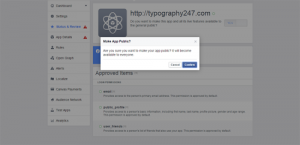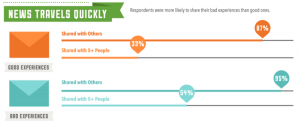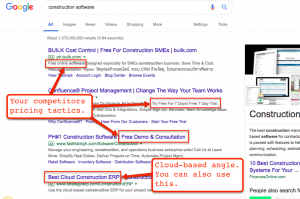After the last presidential election the internet went wild, creating a polarity that damaged friendships, split families, and even destroyed marriages. For many people it was disturbing but for people like me, someone that worked in social media all day long, it was nothing short of traumatic. Every day I had to sift through the growing stream of virtual sound bites to find good curation sources. Every day I saw both sides of the argument get stronger and stronger, and frankly it drained me. Three months after the election I had to go entirely off the grid for four days.
I realized my mind had become polluted. I was chronically tired, angry, sad, stressed and a whole lot of other emotions. I had to come up with a way to manage my time online that didn’t damage my energy and my emotional wellbeing. Literally, I had to find a way to clear the fog in my head.
Many friends are home spending a lot more time in social media and their minds are becoming polluted as well. It doesn’t matter if you’re right or left – the techniques used by today’s influencers (many of them either trained by Steve Bannon or copying his methods, bless his black little heart) are being used not just to influence us but more importantly – make us angry enough to do something.
Are you feeling overly fatigued, angry, frustrated? It might not just be quarantine. Here are few ways I handle mind pollution that might help you as well.
- Try to remember that hardly anything you read as a headline or sub-headline is a fact. Even credible news sources write headlines and teasers based on how much traffic they can get. The name of the game right now is more visitors. Media is increasingly smart as to the best words and phrases to drive the behavior they want. These strong headlines are biased and meant to manipulate you. View them with that lens before reacting.
- Social media consists of rhetoric that is specifically written to change your mood. Fox News and Steve Bannon found the recipe for stoking people’s anger years ago, and now the more liberal media is doing the same. When you see some information that sets your hair on fire, consider your reaction may not be because it is a horrible truth that deserves outrage. It’s because it is a spin on a truth, written by people like me to create that outrage.
- View social media as a long set of ads. That’s what it is, it’s just that it’s peer to peer advertising not the traditional kind. And it’s polarized, so you hate what you don’t agree with, and become more and more passionate about what you DO agree with. Influence (and really all of marketing) works based on the familiarity principle. It’s a psychological rule that the more you see something, the more you agree with it. Today’s messaging frequencies are sophisticated, set by AI technology that determines how often you need to see something to start believing (agreeing) with it. That’s how widgets are sold on Amazon and it’s the same method that drives all those emotions you’re feeling, and hopefully your behavior if we’re doing it right.
- Accept that everyone can be influenced, even you. And that is the more immune you think are to bias , the easier it is for us to influence you. Every single graduate student I teach at the beginning of the IMC program at WVU thinks they can’t be influenced by marketing and advertising. And when they graduate, they all know that everyone can be influenced. People who believe they never get the flu rarely get a flu shot. People who think they aren’t influenced by ads rarely stop to analyze the ads they’re flipping through online.
- When you feel a strong reaction to something, become really mindful and stop to consider what you’ve just seen or read. The stronger the reaction, the more likely it is that you are reading something written to persuade, not inform. Apply a critical lens. You don’t have to do this every time, but doing it just once in a while really helps reduce your emotional reactions overall.
- Watch for an addictive cycle. As things become more familiar, you also notice them more often. (Just like when you buy a new car, and all of a sudden see them all over the road.) Budget the amount you’re engaging in social and stop when your limit is reached.
- Do something nice in social media every day. Retweet someone’s puppy picture. Have a laugh over cheese curds with your buddies. (Just for the record they’re horrid.) Flow through social media with a light touch …not a battering ram.
Finally, remember we are in an intense cycle of persuasion that will continue to November. I would venture to guess about 85% of everything you see is generated by writers, lobbyists and influencers who are creating these messages and sending them out to be adopted by the mainstream every day, in the hopes of getting your vote.
Business & Finance Articles on Business 2 Community
(23)






